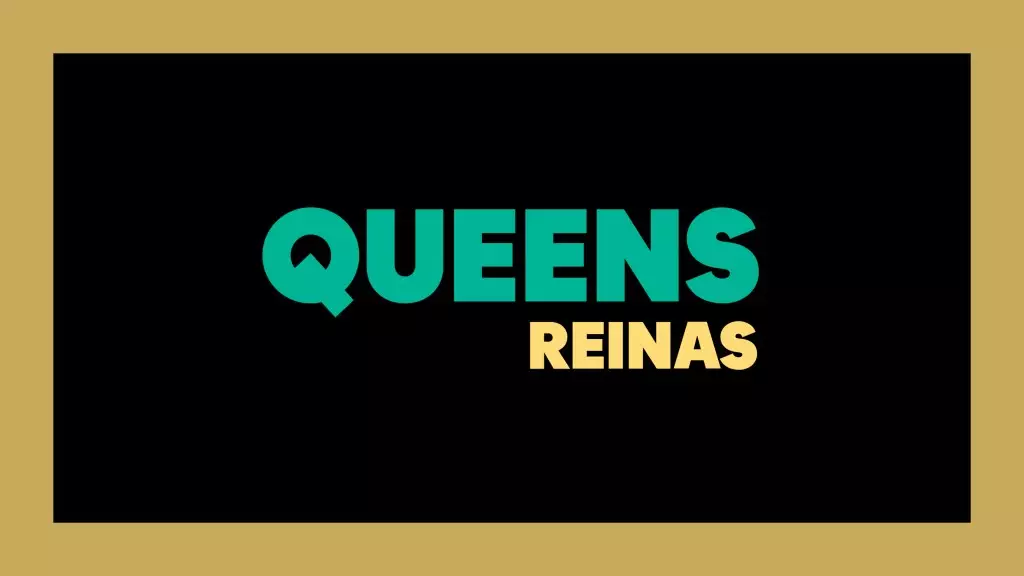The film “Queens” (or “Reinas”) has emerged as Switzerland’s official entry for the International Feature Oscar, despite its heart and authenticity rooted firmly in Peru. Directed by Klaudia Reynicke, who departed her homeland for Europe at the age of ten, this Spanish-language film offers more than just a narrative tale—it is a personal journey of rediscovery and reconnection with cultural foundations. Reynicke articulates a deep-seated desire that she didn’t initially recognize: an instinctive call for her to return to Peru through the lens of filmmaking. The act of creating “Queens” has not only provided her with a platform to tell a story but has also served as an essential conduit for healing and reconnecting with her heritage.
The director’s reflection on this experience highlights a profound truth about the power of cinema—not merely as a storytelling device but as a vital means of emotional and cultural reconnection. Reynicke’s sentiments echo a common thread in the fabric of artistic endeavors: the dichotomy between physical departure and emotional tethering to one’s origins. In her case, the movie stands as both a creative project and an emotional reunion with her past, illustrating how film can serve as both a narrative space and a therapeutic escape.
“Queens” tells a poignant story against the backdrop of Peru’s political turmoil in 1992, focusing on the intricate dynamics within a fragmented family. At the heart of the drama is single mother Elena, who harbors aspirations of starting anew with her daughters Lucía and Aurora. However, to facilitate their departure, the family confronts the looming presence of Carlos, their distant father. This setup introduces not only a narrative conflict surrounding immigration and familial ties but also an exploration of identity, attachment, and the longing for paternal acceptance.
As the daughters navigate their feelings towards their father, the film encapsulates the complexities that often accompany parental relationships, especially in circumstances marked by absence and disconnect. Gonzalo Molina, who embodies the character of Carlos, describes him as a “broken man.” This simplicity belies the deeper layers of his character, reflecting a father’s struggles with vulnerability and regret. His affectionate nickname for his daughters—”queens”—serves both as an endearing acknowledgment of their worth and a painful reminder of his perceived inadequacies.
Luana Vega’s portrayal of Aurora accentuates this internal conflict as she navigates her feelings of resentment stemming from Carlos’ prolonged absence. Her character’s journey reveals a spectrum of emotions, as experiences with fatherhood manifest differently for each daughter. Reynicke successfully crafts these relationships with a nuanced lens, portraying the delicate balance between pain and love within the family unit.
Reynicke’s “Queens” has garnered critical acclaim on the festival circuit, evidenced by its prestigious awards, including the Grand Jury Prize for Best Feature at Berlin’s Generation Kplus strand and the Audience Award at the Locarno Film Festival. Such accolades underscore the film’s resonance with audiences, highlighting how its themes extend beyond the individual experiences of the characters, tapping into broader societal issues tied to identity, migration, and familial love.
The universal theme of separation—of families being torn apart by circumstance or choice—resonates within the narrative threads of “Queens.” Yet, instead of conforming to a traditional narrative arc where hardship breeds only sorrow, Reynicke positions the conclusion of the film as a beautiful testament to growth and transformation. The family evolves through their struggles, embodying a blend of fragility and strength.
In framing these characters as a cohesive unit even as they face imminent separation, the film promotes the idea that all relationships—especially familial—are deeply layered and complex. In Reynicke’s view, love can thrive even in challenging circumstances, suggesting that the narrative of separation does not have to signify an end but rather a different beginning for all involved.
As audiences engage with “Queens,” they are invited to reflect on their own familial ties, the complexities of identity, and the enduring bonds that define our experiences as human beings. Through her directorial prowess, Reynicke fosters not only a film about a family’s journey but an exploration of the cultural currents that shape our identities, making “Queens” a significant contribution to contemporary cinema.


Leave a Reply